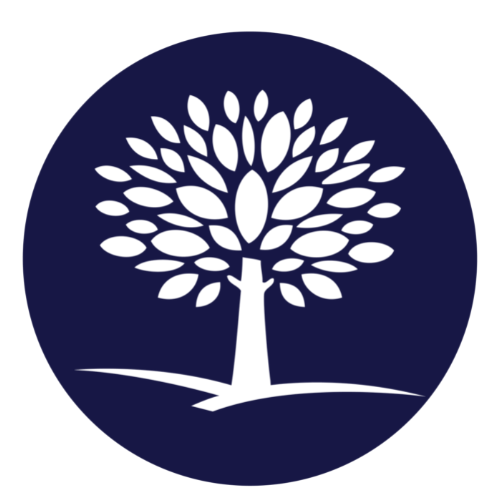Dealing With Depression: A Resource Guide

By The Recovery Village Columbus
Last Updated: December 12, 2022
If you or someone you know is suffering from depression, it can be difficult to know where to turn. There are many excellent resources online that you can use to find out more about depression, including treatments, where to get help, and support for family and friends.
Below is a selection of some of the best websites, organizations and other helpful resources available to anyone who has been diagnosed with or suspects they are suffering from depression.
Mental Health Organizations
If you’re looking for trustworthy organizations around the country that provide help, support, and information on issues relating to depression and mental health, these are some of the best.
Mental Health America: This is one of the main nonprofits in the mental health field where you can find the latest news and information. It focuses on increasing awareness about mental health problems, and you will find a large list of resources and further information.
Brain & Behavior Research Foundation: Here you will find information about depression, anxiety, and other related conditions. The foundation provides support for research into depression and related conditions. You will also find information for people who have recently been diagnosed with a mental illness.
American Psychological Association (APA): This is the largest association of psychologists in the world, and you can visit the website to get access to the latest information on depression and related conditions like ADHD, eating disorders, and suicide.
National Alliance on Mental Illness (NAMI): Provides education and support for the public about different mental health disorders. Its aim is to improve the quality of life for people suffering from mental illnesses, and you can find statistics, research, and information on different conditions on this site.
American Psychiatric Association: Organization for psychiatrists focused on providing treatment for people with mental disorders. It includes many links to resources for mental health problems as well as information about medication and prevention.
Depression and Bipolar Support Alliance: Self-help organization for patients and their families that provides a wealth of information on depression as well as anxiety and bipolar disorder. Visit the site to find out about recovery steps, how to help people who are suffering, and more.
National Institute of Mental Health (NIMH): This is the largest organization in the world to focus on mental health conditions, and it publishes detailed information on the very latest findings related to depression as well as anxiety, ADHD, OCD, and related conditions, as well as lots of further resources.
Anxiety and Depression Association of America: This website includes a very detailed section of facts about various conditions including depression and its symptoms. There are sections on finding treatment, getting support, information from experts, and much more.
Resources for Children and Young Adults
These websites are directed towards children, teenagers, and students.
The JED Foundation: A national foundation that helps reduce suicide among young people. It works to prevent emotional distress, especially for college students, and works with higher education leaders and the public.
American Society for Adolescent Psychiatry: Provides articles written by professional members containing advice and information about mental health conditions. You can read book reviews on the topic of adolescent psychiatry and get information on issues that particularly affect younger people.
Families for Depression Awareness: Here you can download a depression symptoms toolkit. The site also provides help for families in recognizing depression and bipolar disorder and provides training, support, and education on issues such as suicide prevention.
American Academy of Child and Adolescent Psychiatry (AACAP): Professional organization for psychiatrists working with children and adolescents. It advocates for the needs of young people and their families, provides an extensive amount of resources and information, and also aids in locating psychiatrists who work nearby.
The Balanced Mind Parent Network: Program run by the Depression and Bipolar Support Alliance (DBSA) that provides help and guidance for families when a child is suffering from a mood disorder. Visit the site to learn about mood disorders and find resources for parents and caregivers.
National Child Traumatic Stress Network: In this site’s knowledge bank you can find information on traumatic stress in children, the latest news, and campaigns. It focuses on providing information for parents, professionals, and children, and it also provides information for Spanish speakers.
Active Minds: This site is dedicated to students suffering from mental health issues including depression. It encourages students to seek help and provides them with support and information.
Child Mind Institute: This nonprofit helps improve the lives of children with learning disorders and mental health problems. It provides the latest news, works with families and schools, holds educational events, provides free resources, and also has a symptom checker.
Resources for Men
Men sometimes find it harder to talk openly about mental health issues, but fortunately, there are a number of resources designed specifically to aid men with mental health problems.
HeadsUpGuys: With a lighthearted tone, this site speaks directly to men with depression and other mental health problems. It is a detailed resource packed full of information, strategies for coping, self-check guidance, and practical tips for all men.
Man Therapy: This website is focused on mental health in men and aims to provide information and resources on a range of problems including depression and addiction. It covers frequently asked questions, details about therapy for men, and encouragement to bring mental health problems out into the open.
Resources for Women
The following helpful resources are focused on depression in women, providing information and advice for specific conditions like postnatal depression.
Mental Health America: This resource page is for women suffering from depression, and provides information on issues relating to Premenstrual Dysphoric Disorder (PMDD), childbirth, and suicide, as well as links to further resources.
WomensHealth.gov: This government resource provides a fact sheet on depression in pregnancy alongside an extensive number of resources specifically for women suffering from mental health problems like anxiety disorders, borderline personality disorder, and more. This site is also available in Spanish.
National Institute of Mental Health: On this page, you will find information designed for women suffering from depression, and covers important points to know about depression, links to resources, and how to get help.
Resources for Veterans and Military Personnel
U.S. Department of Veterans’ Affairs: This government site has a large section on mental health issues for veterans, containing news, facts, resources, information, and more. It also provides a Veterans’ Crisis Line where you can speak to a specialist directly and includes a self-help section with resources.
Real Warriors Campaign: Website dedicated to resources for veterans suffering from depression and related issues like PTSD. It encourages veterans to seek help for their “invisible wounds” and provides help and advice for both veterans and their families.
Suicide Prevention Resources
Depression and suicide are strongly linked. The following resources provide help and guidance for people at risk of suicide.
National Suicide Prevention Lifeline: Anyone who is considering suicide or who knows someone who might be can call this free, 24-hour line at 1-866-471-2302 to speak to a specialist. This confidential service is run nationwide from local crisis centers, and the website provides resources for people in different situations including loss survivors, youth, suicide attempt survivors, and more.
Crisis Text Line: Anyone who is in an immediate mental health crisis can use this service to text a specialist. The service is free to send and receive text messages, and it operates 24 hours a day, seven days a week. Anyone can access the service by texting HOME to 741741 to speak to a trained crisis counselor.
American Foundation for Suicide Prevention (AFSP): This foundation provides information on finding support for people who are at risk of suicide. It provides advice for people in different situations including those thinking about suicide and those who know someone who might be at risk.
Medication for Depression
Many people struggling with depression may need to take medication to recover and feel normal, and these resources provide key information about types of pills and more.
National Center for Complementary and Integrative Health: For more information about alternative and holistic therapies including herbs and supplements, this government site provides the latest research. If you’ve heard about a supplement and want more information, this is the place to go.
DrugNews: This site provides information about new medicines as well as medicines under review, including information about recalls and medical devices. You will find information on prescription medications, warnings about products, patient stories, and possible side effects.
General Information on Depression
These resources are among the most useful for general information and support for people suffering from depression, and their families, too.
Dual Diagnosis: This website provides a large amount of information on various mental disorders as well as addiction. You will find details on the range of treatments available as well as research, publications, and in-depth articles.
NoStigmas: This site provides peer-to-peer mental health support, and is a place where people can share their experiences, find support, take action, and join a supportive community.
Make It Ok: This site is dedicated to increasing awareness of mental health issues, including guidance on how to talk to people with depression, real stories from people battling mental illness, resources to learn more about mental illness, a podcast, and more.
Academy of Cognitive Therapy: Find out more about cognitive therapy and how it can be used to treat depression. Get answers to your questions, find a therapist, and check out the numerous resources.
International Bipolar Foundation: Here you will find a large amount of information and resources about bipolar disorder. It has a section dedicated to getting help, as well as a list of treatment centers and information on how to get involved.
MentalHealth.gov: This government resource, also available in Spanish, covers the basics of mental health including signs and symptoms, various conditions including depression, and information on how to get help.
Care for Your Mind: This is a place where you can share personal experiences and find articles covering all aspects of mental health as well as interviews, news, and personal stories related to depression.

Questions?
Our Recovery Advocates are ready to answer your questions about addiction treatment and help you start your recovery.

